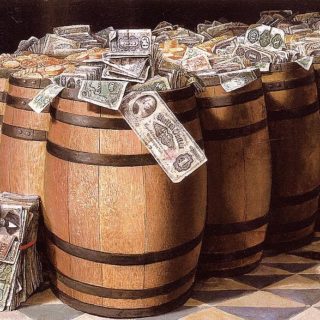Category: Macroeconomics
Purchasing Power Parity; hey look, a balance
Our willingness to pay a certain price for foreign money must ultimately and essentially be due to the fact that this money possesses a purchasing power as against commodities and services in that country. On the other hand, when we offer so and so much of our own money, we are actually offering a purchasing power as against commodities and services in our own country. Our valuation of a foreign currency in terms of our own, therefore, mainly depends on the relative purchasing power of the two currencies in their respective countries. Abnormal Deviations in International Exchanges, Gustav Cassel,...
Khazzoom-Brookes Postulate: the debate goes on
There is no consensus about the relationship between energy efficiency and energy use and the topic is still highly contested. Some argue that energy efficiency improvements might increase the consumption of energy. This effect is known as the Khazzoom-Brookes Postulate. According to Euractiv, “This effect takes place when the energy savings produced by the measure are taken back by consumers in the form of higher consumption. An example: a household, which has made big energy savings over the year might, at the end of the year, decide to buy a new car with the money they saved. It is...




